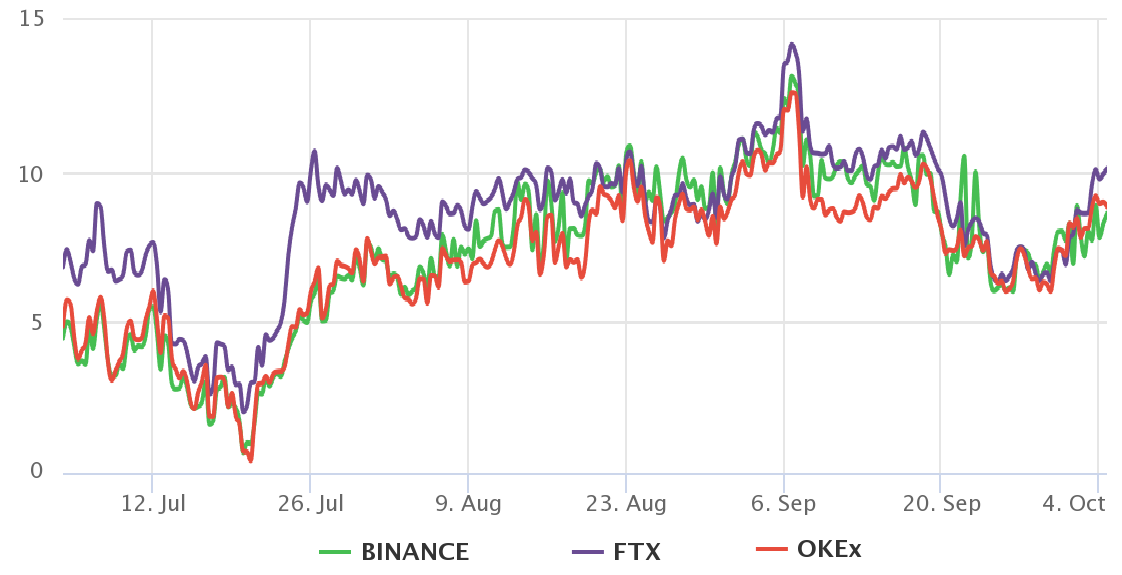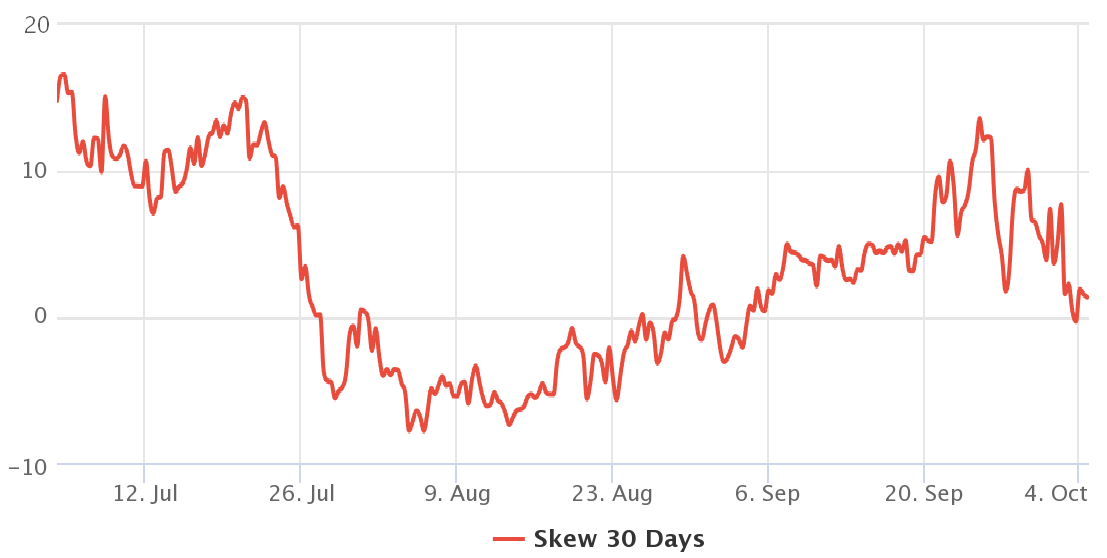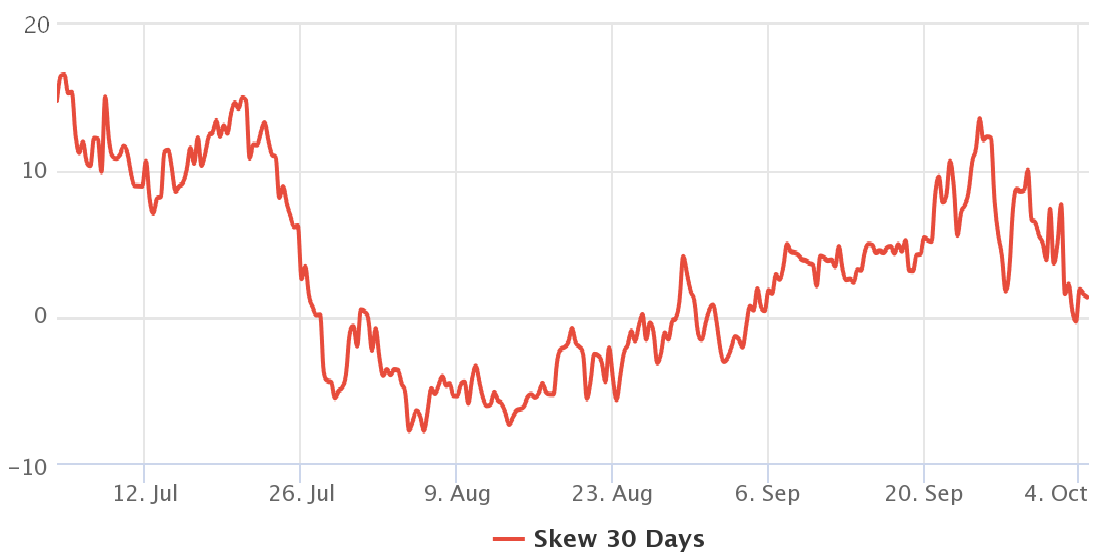Cryptocurrency markets rallied 12.5% over the past seven days to reach a $2.44 trillion market capitalization. However, that move doesn’t seem to be inspiring confidence because the same level was tested 16 days ago when a 27% retrace followed Ether’s (ETH) attempt to break $3,650 over the next six days.
Regulation seems to be a key concerning factor for buyers as the United States House of Representatives is expected to vote on the $1 trillion infrastructure bill this month. In addition to defining who qualifies as a broker, the legislation would impose anti-money laundering (AML) and know-your-customer (KYC) type requirements on many kinds of cryptocurrency transactions, which could also be detrimental for DeFi protocols.


As shown above, the negative performance seen in the top 10 cryptocurrencies has impacted investor sentiment over the past 30 days. For this reason, it’s important to measure more than just Bitcoin’s (BTC) nominal price. Traders should also analyze Bitcoin’s derivatives indicators like the futures markets premium and options skew.
The futures premium shows traders are slightly bullish
The basis rate is also frequently referred to as the futures premium and it measures the difference between longer-term futures contracts and the current spot market levels.
A 5% to 15% annualized premium is expected in healthy markets, which is a situation known as contango. This price difference is caused by sellers demanding more money to withhold settlement longer.


As depicted above, the current 9% annualized premium is neutral but shows an improvement over the previous couple of weeks. That indicates that traders are cautiously optimistic, leaving room for further long leverage when confidence is fully restored.
Options traders exit ‘fear’ mode
To exclude externalities specific to the futures instrument, one should also analyze options markets.
The 25% delta skew compares similar call (buy) and put (sell) options. The metric will turn positive when “fear” is prevalent as the protective put options premium is higher than similar risk call options.
The opposite holds when market makers are bullish, causing the 25% delta skew indicator to shift to the negative area. Readings between negative 8% and positive 8% are usually deemed neutral.


Notice how Bitcoin option traders entered the “fear” level on Sept. 25 as the $41,000 support was tested multiple times. Nevertheless, a drastic change has taken place since Sept. 30, and the indicator now sits at a neutral zone.
As the situation currently stands, both the futures’ basis and options 25% skew show a typical “glass half full” scenario. Meaning that even though Bitcoin reached its highest level in 27 days and is above the $50,000 resistance, there’s still room for buyers to strap on additional leverage before metrics flash signs of overextension or euphoria.
A $50,000 breakout with the current meager derivatives data would usually be interpreted as a weakness. However, considering that the total crypto capitalization is still in the same place as 30 days ago and the unmitigated regulatory concerns, there is no reason to worry. At the moment, neither the futures markets nor the options markets show any signs of bearishness.
The views and opinions expressed here are solely those of the author and do not necessarily reflect the views of Cointelegraph. Every investment and trading move involves risk. You should conduct your own research when making a decision.
